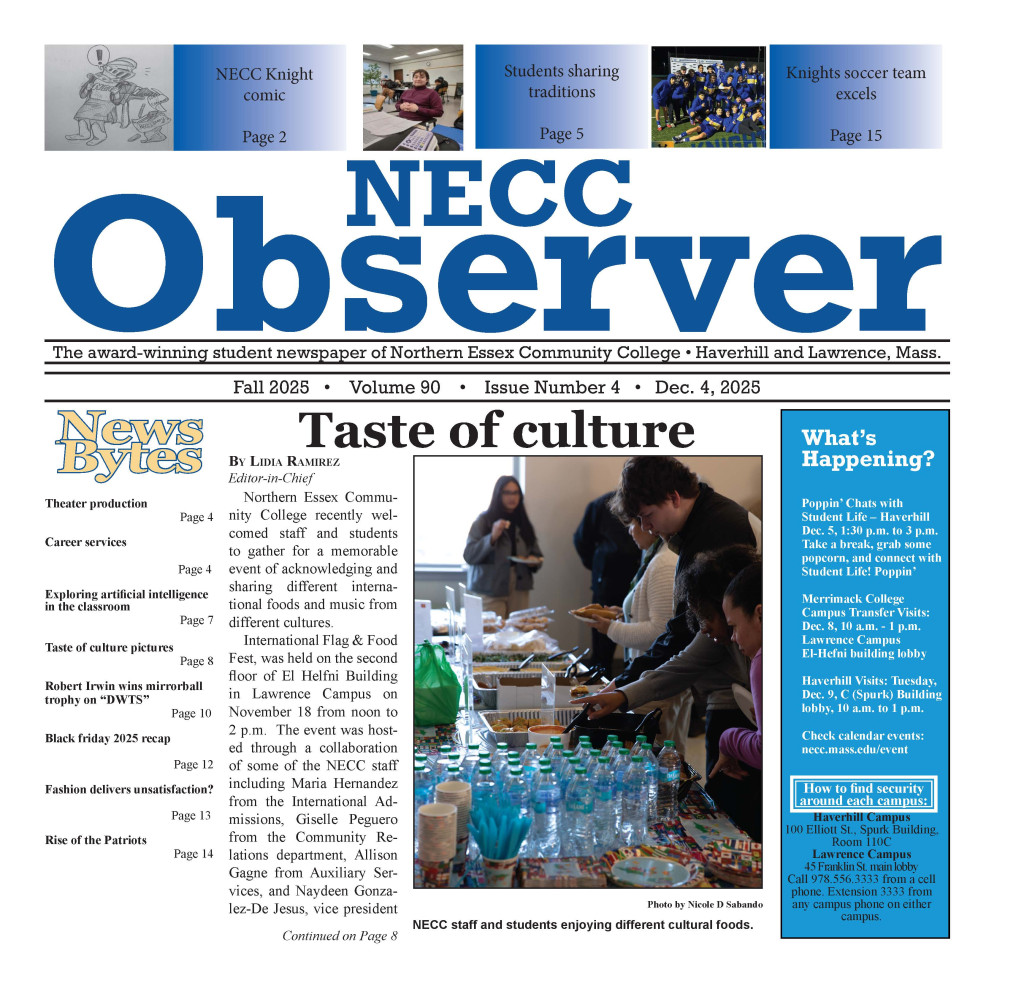There is currently an epidemic of young adults suffering from mental health problems. These issues may have been prompted by a number of things on account of COVID-19 such as loss of jobs or financial troubles, worries about the safety of ourselves and loved ones and compromised social lives.
From a 2021 Pew Research Study, “Adults ages 18 to 29 are especially likely to report anxiety, depression or loneliness compared with other age groups.”
That same study also states, “Young people have been a particular group of concern during the pandemic for mental health professionals, and young adults stand out in the current survey for exhibiting higher levels of psychological distress than other age groups.”
The benefits of self care include improving one’s physical health, protecting one’s mental health, an increase in self esteem and being led to healthier relationships.
In an interview with licensed mental health counselor at NECC, Gabriel Garcia, he shares some benefits of self care such as learning to tolerate stress and forgiving ourselves for our shortcomings, all in order to learn to suspend our own judgment of ourselves and “master the self” as he says.
He chooses to practice self care by establishing healthy routines, gratitude journaling nightly and hitting the gym a few times a week– anything to “recharge” himself.
Sharon McManus, director of professional development at NECC and organizer of the 2021 Mental Health First Aid Training. This training is aimed to become a certified mental health “first aider” which entails being able to serve students in all areas of life and being able to recognize those struggling. These accredited students and faculty members are able to be more empathetic towards others as a direct result of this training. So far, at NECC, 198 people have been certified. The college will offer another session of Mental Health First Aid Training on May 18.
McManus practices self care by expanding her exercise routine and focusing on getting a good night’s sleep. She says, “I think to increase productivity we each need to focus on taking care of ourselves.”
Self care is extremely valuable to one’s mental, emotional and physical health. It helps us think clearer and become better decision makers. We are able to cope better to reduce stress and anxiety. Simply put, it has been scientifically proven that practicing self care leads to a better quality of life– and who wouldn’t want that.


